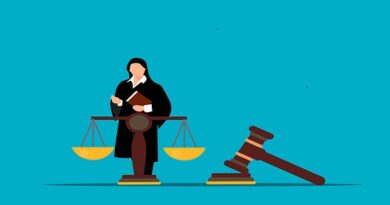Criminal Justice – Denial of exemption from Personal Appearance prior to grant of bail after filing charge-sheet
On 23.12.2019, the complaint was filed against two officers of National Research Laboratory for Conservation of Cultural Property, Lucknow, for attacking the complainant and threatening to kill him. FIR was registered for offences under Sections 323, 504 and 506 of IPC.
On 4.2.2020, the charge-sheet was filed with addition of offences under Sections 308, 325 and 120B of IPC and impleading the Manager Singh as an accused.
On 10.2.2020, the order taking cognizance and issuing summons was passed.
On 18.2.2021, the application for exemption from personal appearance was moved on behalf of Bachhan Singh and Mahendra Kumar. Manager Singh was absent and bailable warrant was issued for appearance on 4.3.2021.
On 4.3.2021, the application for exemption from personal appearance was filed. It was rejected on the ground that Manager Singh had not obtained bail till then and there is no provision for exemption from personal appearance prior to obtaining bail. Therefore, non-bailable warrant was issued against him.
The petition to quash the criminal proceedings under Section 482 of Cr PC was dismissed by the High Court on 16.3.2021. On 3.9.2021, the High Court granted further time of 10 days to surrender but Manager Singh did not surrender and filed another application for extension of time to surrender.
The Supreme Court quashed the non-bailable warrants and held that the observation of the Magistrate that there is no provision for granting exemption from personal appearance prior to obtaining bail is not correct as the power to grant exemption from personal appearance under the Code should not be read in a restrictive manner as applicable only after the accused has been granted bail.
The power to grant exemption from personal appearance should be exercised liberally when facts and circumstances require such exemption. Section 205 states that the Magistrate exercising his discretion may dispense with the personal attendance of the accused while issuing summons and allow them to appear through their pleader. While provisions of the Code are considered to be exhaustive, cases arise where the Code is silent and the Court has to make such order as the ends of justice. In such cases, the criminal court must act on the principle that every procedure which is just and fair is understood as permissible, till it is shown to be expressly or implied prohibited by law.
Judgment dated 1.5.2024 in Criminal Appeal No. ….of 2024 (arising out of Special Leave Petition (Criminal) No.1074 of 2017) of Arif Ahmed and Another Vs. State of Uttar Pradesh and Another with connected matters.




